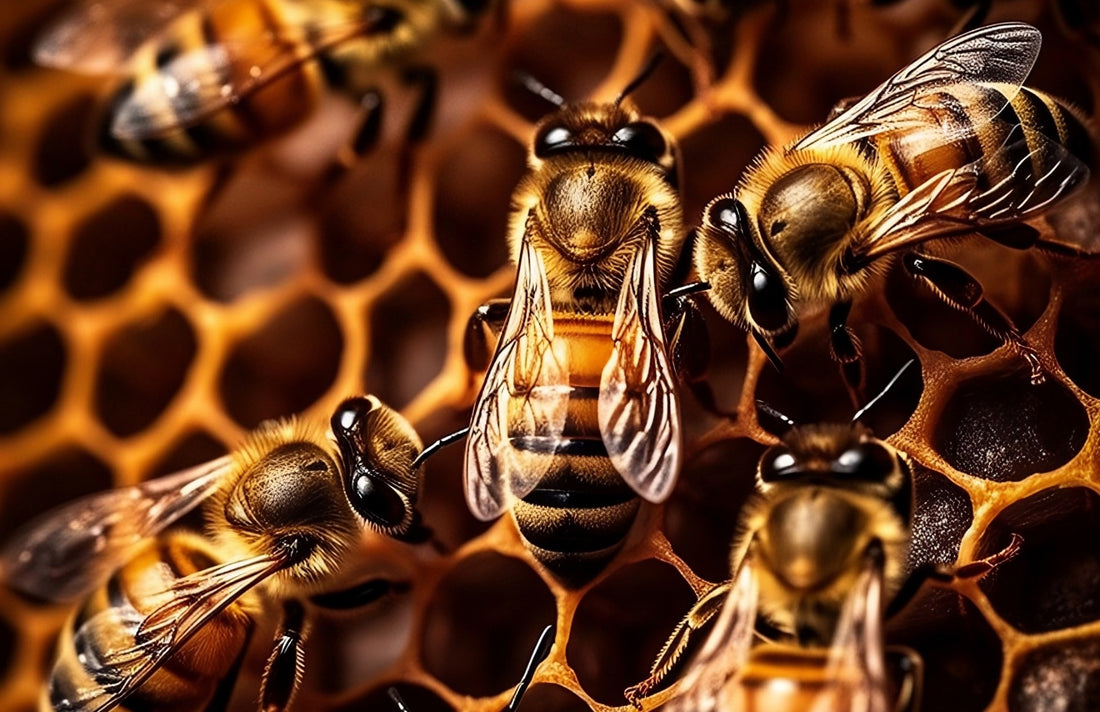Beekeeping has always been an integral part of agriculture, but in recent years, the focus has shifted towards more sustainable and eco-friendly practices. This is where organic beekeeping comes into play, an approach that not only supports bee health but also contributes to the overall well-being of the ecosystem. In this article, we delve into the fascinating world of organic beekeeping, uncovering facts that may surprise and enlighten you.
What is Organic Beekeeping?
Before we buzz into the facts, let's define our topic. Organic beekeeping is a method that emphasizes the health and natural living conditions of bees, adhering to organic standards and avoiding synthetic chemicals. It's more than just a beekeeping technique; it's a philosophy that respects the natural behaviors and habitat of bees.
10 Facts About Organic Beekeeping
Fact 1: Natural Hive Substances Are Key
In organic beekeeping, the use of natural hive substances is essential. Bees produce propolis, a resinous mixture that is crucial for the structural integrity and health of the hive. This natural substance plays a significant role in maintaining the hive's internal environment and is a staple in organic practices.
Fact 2: Annual Certification for Authenticity
Organic beekeeping requires annual certification to ensure that beekeepers adhere to strict organic standards. This certification process is crucial for maintaining the integrity of organic beekeeping practices and ensuring that the products derived from these hives are genuinely organic.

Fact 3: Chemical Pesticide Avoidance
One of the core principles of organic beekeeping is the avoidance of chemical pesticides. This practice not only benefits the bees by reducing their exposure to harmful substances but also ensures that the honey produced is free from chemical residues. A study conducted by Pennsylvania State University highlighted the importance of this practice for bee health and productivity.
Fact 4: Emphasis on Organic Treatments for Bee Health
Organic beekeepers prioritize natural methods for maintaining bee health, including organic treatments for common bee ailments. These treatments are crucial for keeping the bees healthy without compromising organic standards.
Fact 5: Honey Traceability and Integrity
In organic beekeeping, traceability is a significant factor. It ensures that every jar of honey can be traced back to its source, guaranteeing the integrity and purity of the product. This aspect of organic beekeeping sets it apart from conventional methods.

Fact 6: Sustainable Beekeeping Practices
Sustainable beekeeping is at the heart of the organic approach. This involves practices like maintaining the natural bee foraging behavior and ensuring the balance of the apiary ecosystem. It's not just about honey production; it's about creating a sustainable environment for the bees to thrive.
Honey Bee Survival and Organic Standards
The survival of honey bees is a critical concern in the world of beekeeping. Organic standards play a pivotal role in ensuring the bees are kept in an environment that supports their health and longevity.
Fact 7: Comparison with Conventional Beekeeping
When we compare organic beekeeping with conventional methods, several differences emerge. Organic beekeeping emphasizes the well-being of the bees and the environment, while conventional methods often prioritize productivity and efficiency. The Livestock Project offers insightful comparisons between these two approaches.
Fact 8: Organic Certification Challenges
Achieving and maintaining organic certification is not a walk in the park. It involves rigorous standards and continuous adherence to organic practices. Beekeepers must navigate through various requirements, such as organic bee nutrition, ensuring non-toxic hive treatments, and following ecological hive construction guidelines.
The Challenges of Organic Certification
Organic beekeeping, while rewarding, comes with its own set of challenges, especially when it comes to certification.
Fact 9: The Intricate Balance of the Apiary Ecosystem
A vital aspect of organic beekeeping is maintaining the delicate balance of the apiary ecosystem. This includes understanding and respecting the natural bee foraging behavior, managing the bee population sustainably, and ensuring the health of the bees through natural means.

Organic Beekeeping vs. Environmental Impact
The environmental impact of beekeeping is a critical factor, particularly in the context of organic practices.
Parasite and Pathogen Control
In organic beekeeping, managing parasites and pathogens like Varroa mites is done through natural and organic methods. This approach is crucial for maintaining the immune function in bees without relying on synthetic chemicals.
Beekeeping Management Philosophies
Organic beekeeping is not just a set of practices; it's a philosophy that encompasses various aspects of beekeeping management. This includes pollinator-friendly farming practices and the integration of organic beekeeping legislation and policies.
The Future of Organic Beekeeping
Organic beekeeping is not just a fleeting trend; it's a commitment to sustainable and environmentally-friendly practices that prioritize the well-being of bees and the quality of the products they produce.
In conclusion, organic beekeeping is a fascinating and complex field that offers numerous benefits not only to the bees but also to the environment and consumers. By understanding and embracing these practices, we can contribute to a more sustainable and harmonious world. For more insights into sustainable agriculture and organic living, visit Crush Organics, your go-to resource for all things organic.
Remember, each jar of organic honey is not just a product; it's a testament to a beekeeper's commitment to the health and well-being of bees and the environment. Let's appreciate and support these efforts for a better, more sustainable future. 🌍

